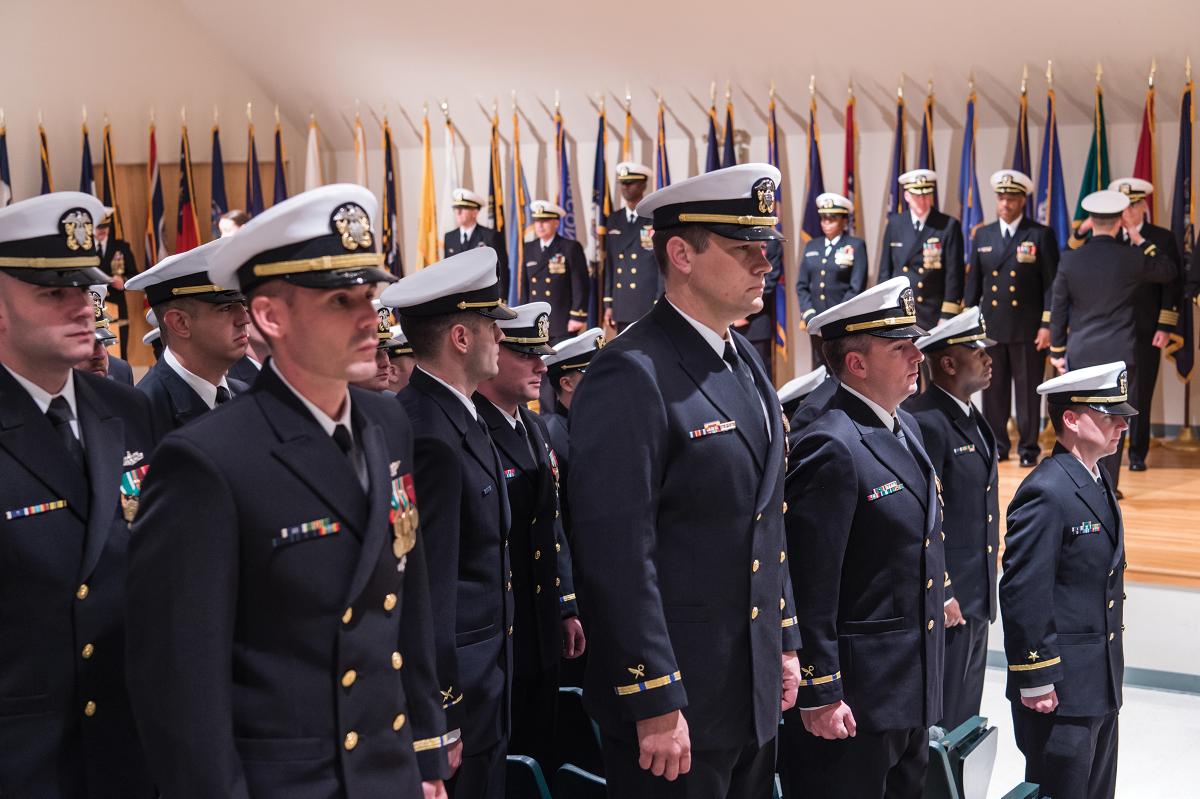For many U.S. Navy sailors who don the uniform and serve our great nation, the call to adventure is what initially sparked the desire to enlist. Some of us wanted to better ourselves and our environment, but most of us also accepted the invitation to be of service in a profound and inspiring way. As we make rank, rub elbows with a tribe of mentors, and take on different roles and responsibilities, the drive to promote motivates us—we all want to climb the ladder. And yet, I would caution sailors to be mindful of where that ladder is placed.
I am reminded of Simon Sinek’s book Start with Why: How Great Leaders Inspire Everyone to Take Action (Portfolio, 2011). Ask yourself why it is you want to be an officer: Is it the paycheck, the uniform, the hand salute, the legacy? Or has a once-gentle tug become an overwhelming pull that you cannot ignore? There are many spokes in the wheel of personal well-being, and if one spoke is out of line, you will begin to lose balance. If you place your moral compass with honest intentions at the forefront of the decision to submit a commissioning program package, I think you will find your true north—your calling.
The first thing you should start with is knowing exactly what it is you are applying for. What jobs will you be required to fulfill? I cannot tell you how many times sailors have asked me to review their limited duty officer/chief warrant officer packages, and I have found they honestly did not know what the designator was or what their responsibilities would be.
If you don’t know what you are applying for, then why are you applying? For example, a boatswain’s mate who applies for limited duty officer likely will follow a career path of ship’s boatswain, assistant first lieutenant, amphibious detachment officer in charge, Board of Inspection and Survey, etc. A balanced sea/shore rotation simply does not exist for most in that designator. In addition, sailors assigned to an aircraft carrier will spend a lot of time standing officer of the deck (at sea). None of these assignments is less important than another, however, it is important to know what you are signing up for. Ask yourself: Is this a good fit for you? Is your family on board with your decision?
In addition to knowing what billets you ultimately will be assigned to, you must ensure you can step into that position the instant you are commissioned. If you are applying for deck chief warrant officer (7110) and you have no well deck or amphibious experience, it is going to be very difficult for the detailer to assign you as a ship’s bos’n or amphibious detachment officer upon commission, and therefore the board will advise that you get more experience in the field in which you are applying. If you have not had the opportunity to spend time at any of these commands, request temporary duty to one of them and learn about the designator for which you are applying. The qualifications will speak for themselves.
The last but most important thing to understand when applying for a commissioning program is the role of a “mustang” (an officer who commissions after working his or her way through the enlisted ranks) versus that of a chief petty officer. Limited duty officer and chief warrant officer are separate programs that provide the Navy with officer technical managers and technical specialists, respectively, who lead in key positions throughout the service. The chief petty officer provides a noncommissioned sailor’s perspective in myriad settings. Although chiefs are expected to be technical experts, there is an emphasis on sailor development and deckplate leadership.
There are many resources for sailors who want to apply for a commission and/or submit a package for chief petty officer. Everything you submit holds value: evaluations, qualifications, education, and anything else you have accomplished. Use those resources to ensure your package gives you the strongest opportunity to advance. And although those resources are great tools, do not forget to network with the community to which you are applying. Talk to inspirational chief petty officers and ask questions. Reach out to a mustang you know to be professional and inspiring to get his or her insight into the program.
I have been a chief, a limited duty officer, and a chief again. From my experience, I can tell you that leadership knows no pay grade or collar device. Whichever career trajectory you choose, know that you are a leader and only you can decide how to implement your authority and ability to do some good for the Navy, the country, your sailors, yourself, and your family.
Sometimes the hardest decisions to make are also the most important.







